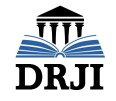The mythology of the Portuguese colonial world in decay in António Lobo Antunes’ romanesque prose
DOI:
https://doi.org/10.5433/1679-0383.2021v42n1p43Keywords:
Os cus de Judas, Colonial mythical, DecompositionAbstract
The colonial imagery of a great Portuguese empire becomes the material revisited by the singular narrator of the novel Os cus de Judas (1979), by António Lobo Antunes, since the tragic reminiscences of the colonial war experienced by him on Angolan soil are resumed. In this fateful return, the narrator projects a destructive image of the values that were part of his training as the “expected Portuguese being”, so that, when demobilizing such thoughts, the subject finds another way to look at the past without necessarily have to pay him homage. Consequently, in the narration, specific strategies are developed so that the mythology that regimented the narrative of the Portuguese colonial world is put into decomposition. It is these strategies that characterize the focus of the writing undertaken here, in order to analyze how a given national epos model is questioned and, thus, receives a new accent within the Antunian narrative in focus. Therefore, the conceptions of Eduardo Lourenço (2001, 2016) about the disenchantment cultivated in the Portuguese scenario and Bakhtin’s (1993, 1997) theorization about the characteristics of epicity are part of the theoretical framework of this article.Downloads
References
ARNAUT, A. P. António Lobo Antunes. Lisboa: Edições 70, 2009.
ARNAUT, A. P. (Org.). Entrevistas com António Lobo Antunes 1979-2007: Confissões do trapeiro. Coimbra: Almedina, 2008.
ANTUNES, A. L. A confissão exuberante. [Entrevista cedida a] Rodrigues da Silva. Jornal de Letras, Artes e Ideias, Lisboa, n. 613, p. 16-19, 13 abr. 1994.
BAKHTIN, M. Questões de literatura e de estética: a teoria do romance. Tradução: Aurora Fornoni Bernardini [et al.]. 3. ed. São Paulo: Hucitec; Fundação para o desenvolvimento da UNESP, 1993.
BAKHTIN, M. Problemas da poética de Dostoiévski. Tradução: Paulo Bezerra. 2. ed. Rio de Janeiro: Forense Universitária, 1997.
BAKHTIN, M. Estética da criação verbal. Tradução: Paulo Bezerra. 4. ed. São Paulo: Martins Fontes, 2010. (Coleção biblioteca universal).
BAKHTIN, M. Teoria do romance I: a estilística. Tradução: Paulo Bezerra. São Paulo: Editora 34, 2015.
BARTHES, R. Mitologias. Tradução: Rita Buongermino [et al.]. Rio de Janeiro: DIFEL, 2003.
BAUMAN, Z. Identidade: entrevista a Benedetto Vecchi. Tradução: Carlos Alberto Medeiros. Rio de Janeiro: Jorge Zahar Ed., 2005.
BEZERRA, A. C. P. De vencedores a vencidos: o desmonte da identidade nacional na prosa de António Lobo Antunes. 2018. Tese (Doutorado em Estudos da Linguagem) - Universidade Federal do Rio Grande do Norte, Natal, 2018.
BORNHEIM, G. A. (Org.). Cultura brasileira: tradição, contradição. Rio de Janeiro: Zahar, 1987.
BRANDÃO, J. Dicionário mítico-etimológico da mitologia e da religião romana. Petrópolis: Vozes, 1993.
CARDOSO, N. V. A mão-de-Judas: representações da Guerra Colonial em António Lobo Antunes. Alfragide: Texto Editores, 2011. (Coleção António Lobo Antunes).
CHEVALIER, J.; GHEERBRANDT, A. Dicionário de símbolos. Tradução: Vera da Costa e Silva. 2. ed. Rio de Janeiro: J. Olympio, 1989.
FREYRE, G. O mundo que o português criou. Rio de Janeiro: José Olympio Editora, 1940.
GINZBURG, J. A guerra como problema para os estudos literários. In: PADILHA, L. C.; SILVA, R. F. (Org.). De guerras e violências: palavra, corpo, imagem. Niterói: Editora da UFF, 2011.
Downloads
Published
How to Cite
Issue
Section
License
Semina: Ciências Sociais e Humanas adopts the CC-BY-NC license for its publications, the copyright being held by the author, in cases of republication we recommend that authors indicate first publication in this journal.
This license allows you to copy and redistribute the material in any medium or format, remix, transform and develop the material, as long as it is not for commercial purposes. And due credit must be given to the creator.
The opinions expressed by the authors of the articles are their sole responsibility.
The magazine reserves the right to make normative, orthographic and grammatical changes to the originals in order to maintain the cultured standard of the language and the credibility of the vehicle. However, it will respect the writing style of the authors. Changes, corrections or suggestions of a conceptual nature will be sent to the authors when necessary.

















